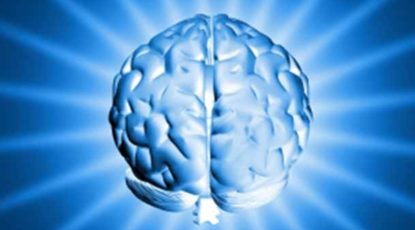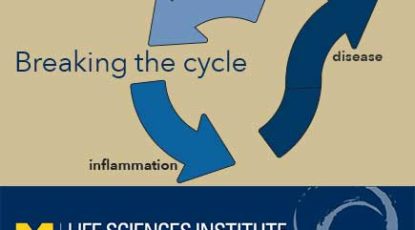Research News
-
On purpose
Losing his daughter to heart disease nearly derailed Professor Vic Strecher until he discovered his mission to help others live their fullest lives.
-
Color solar cells fuse energy, beauty
New technology invented at U-M brings colorful design element to solar panels.
-
Assessing post-combat therapies
Numerous resilience and prevention programs address the psychological health of veterans, but no evidence exists to prove their effectiveness.
-
Innovative algae research keeps students in state
Greenest of the green movements attracts brightest of the bright PhD students.
-
Aging successfully
The new year brings an awareness that we’re all a bit older. Aging expert Robert Kahn shares timeless wisdom, which these spirited alumni clearly know.
-
Do mind games net brain gains?
Websites like Lumosity and PositScience promise improved brain fitness through game-like exercises. Researchers ask: Does that fitness transfer to real life?
-
Breaking the cycle of obesity, inflammation, disease
New findings bode well for U-M clinical trials on a drug that could reverse obesity, Type 2 diabetes, and fatty liver disease.
-
A mother's warmth is little comfort to a spanked child
A mother’s affection after she spanks her child does little to diminish the negative impact of the act, a new U-M study finds.
-
The future is now
U-M researchers are teaching cars, roads, traffic lights, and other roadside devices to talk to each other. Their conversations just might make driving easy, save lives, and generally improve road conditions. Connected vehicles will inform each other out about such things as traffic tie-ups, icy roads, disabled vehicles, and lane closures. And drivers will Read more










